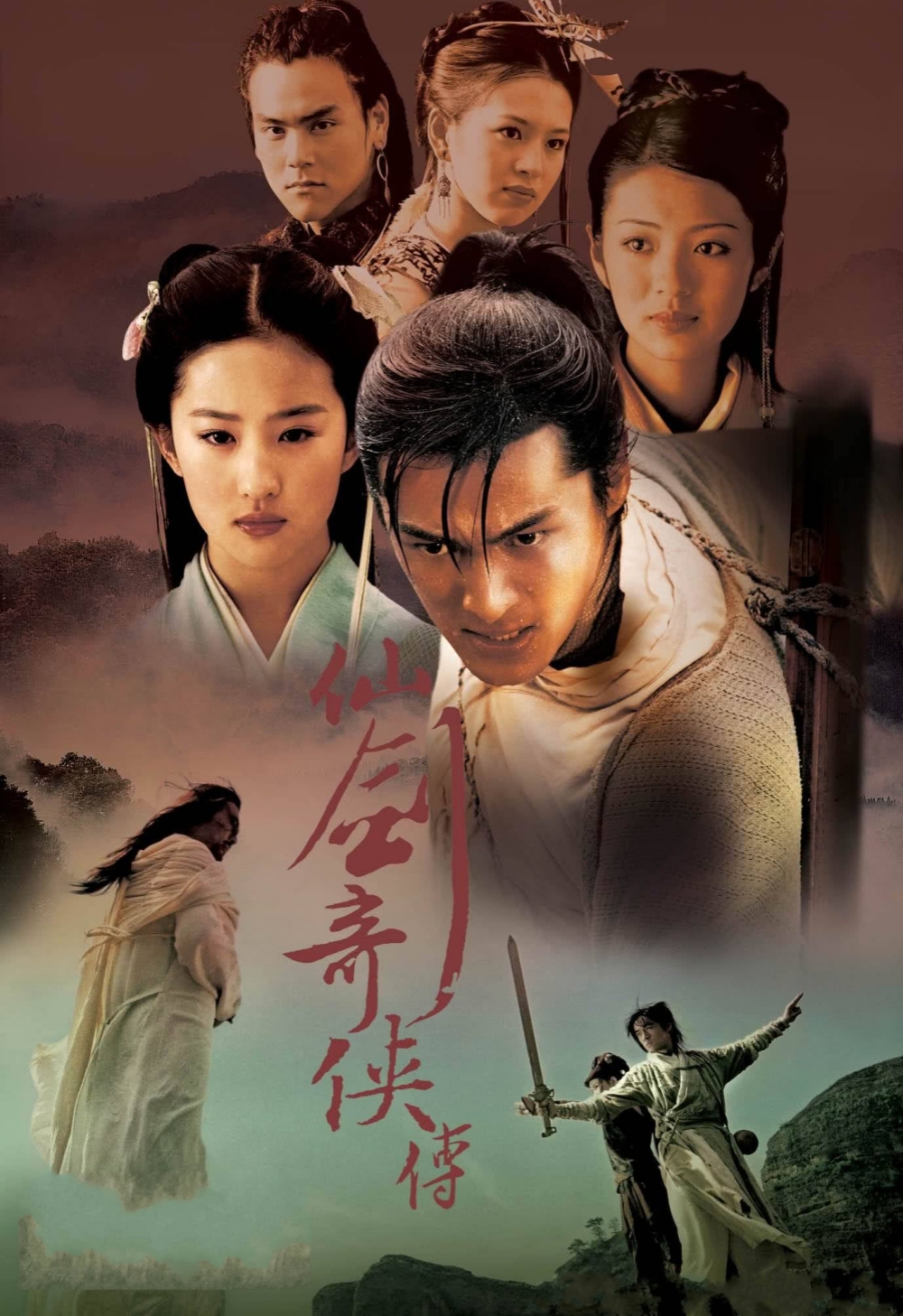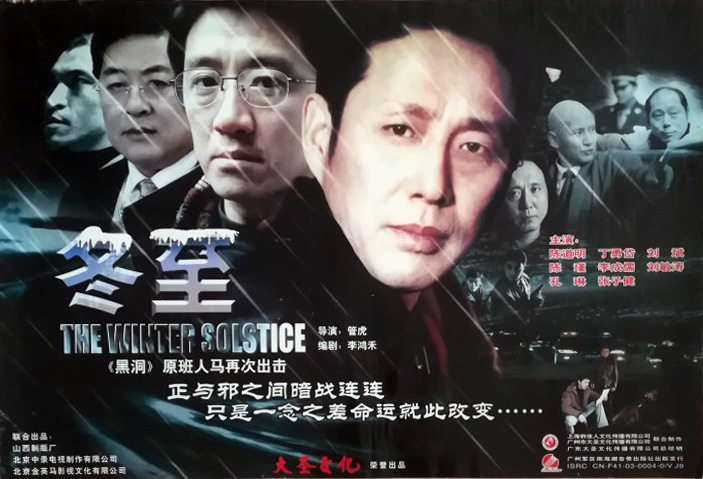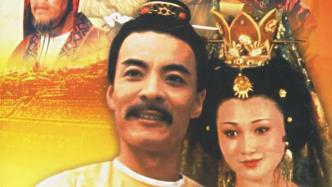
Editor's note: This is a nostalgic theater.
In 1992, the prime time of CCTV launched China's first TV series depicting the life of an emperor, and it was also the first TV series depicting the prosperity of the prosperous Tang Dynasty. It is "Tang Minghuang", and the total cost of the whole play is more than 15 million yuan (including the set film "Yang Guifei"). If the Tang Palace in Wuxi and Zhuozhou is added with more than 9 million yuan, the total investment is about 25 million yuan. At that time, this play was undoubtedly regarded as a rare masterpiece with huge investment, strong artistry and strong watchability.
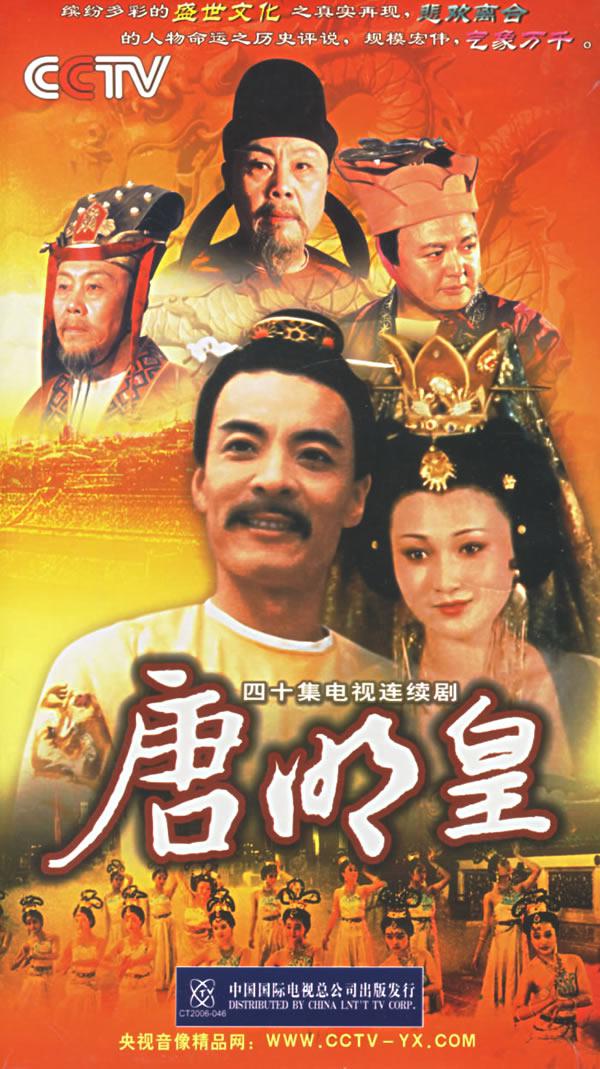
"Tang Minghuang" poster
Temperament emperor
The audience may be surprised when they see the word "Tang Minghuang", why the folk title of emperor Li Longji was used instead of the historical orthodox emperor name "Tang Xuanzong". "Tang Minghuang" is not a pure historical drama, but a TV series adapted from a novel. On the other hand, this drama is different from the long-form TV dramas such as "Water Margin", "Journey to the West" and "Dream of Red Mansions" that were broadcast in the 1980s. It is not adapted from a Chinese classical masterpiece, but from the novel of the same name by modern novelist Wu Yinyi. "Tang Minghuang" is a total of four novels, published from 1985 to 1987. In just a few years after the novel was published, it quickly became a TV series. From this point of view, it is not easy. In another sense, since the original work is a novel, TV dramas can be free from history and have more room for creation.
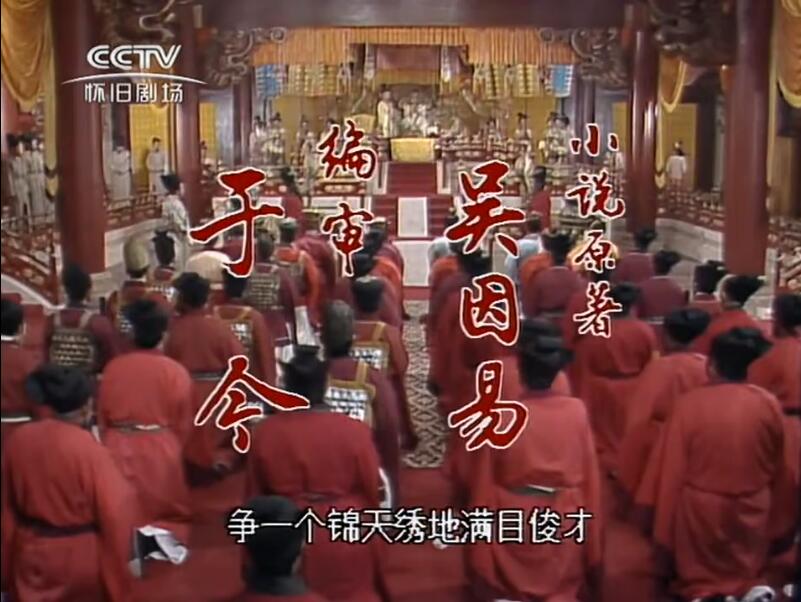
"Tang Minghuang" is adapted from the novel of the same name
"Tang Minghuang" has a total length of 40 episodes. The whole play begins with Wu Zetian's praise of Li Longji and ends with Li Longji's death. It depicts the life story of the legendary emperor Tang Minghuang, including Tang Long's Change, Congenital Change, Anshi Rebellion and many other historical events. Liu Wei, who won the competition with well-known actors such as Zhou Lijing and Tang Guoqiang, took the lead role of Li Longji. The title design of the play is very distinctive. According to the number of episodes (that is, the chronological progress in the play), the protagonist sitting on the throne of the emperor is switched from a young image to a middle-aged image, and then to an old age. This not only implies the growth of the protagonist's age, but also implies the history of the Tang Dynasty from prosperity to decline.
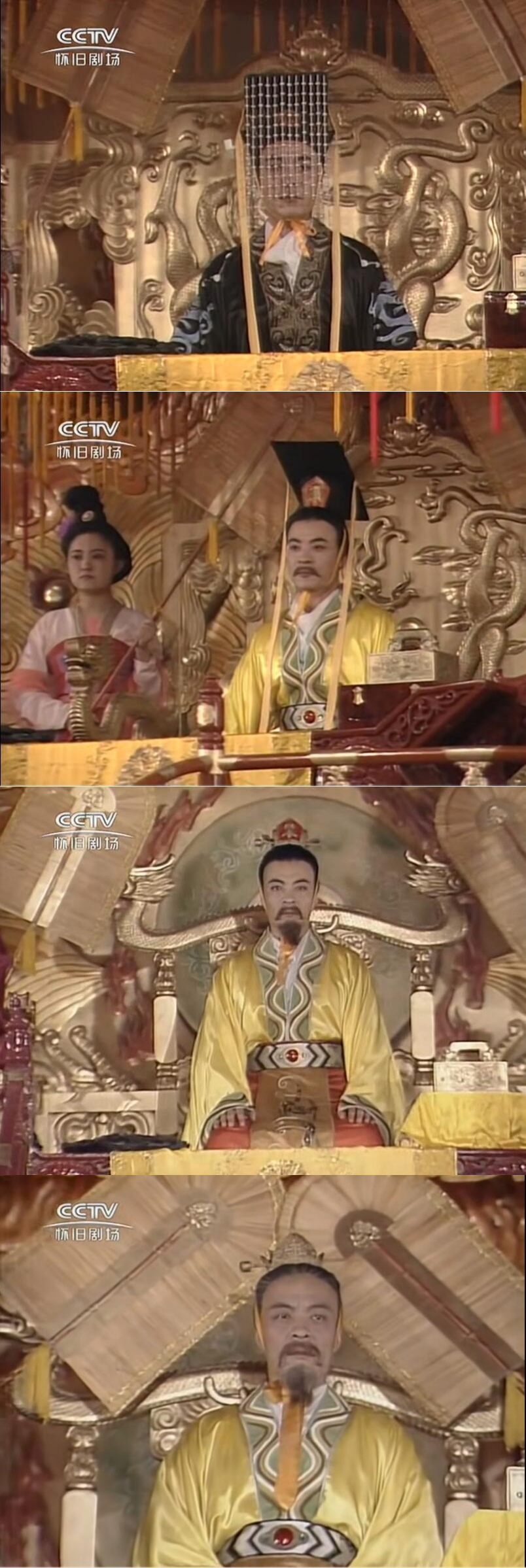
Changes in the title character image
Li Longji has the style of his great-grandfather Li Shimin. Having experienced the shocking changes in the palace since he was a child, he has courage and strategy, and is the leader of Tang Long's changes and congenital changes. He is also the son raised by the Buddhist emperor Li Dan, and the younger brother who is humbly spoiled by his elder brother Li Chengqi. He is an emperor who values family affection.
The TV series highlights Li Longji's loving father, filial son, and respectful brotherhood. He would choose to conceal and voluntarily take responsibility because his actions made his father panic; he would avoid Luzhou because he was elected as the prince by the officials and embarrassed his elder brother.
In the TV series, Li Longji is still an emperor who values family affection. He launched Tang Long's change because his uncle Li Xian was poisoned by the Wei family and Princess Taiping, mainly to take back the Li family, not to become emperor. Even in the congenital change, Li Longji is not only passive, but also always persuades his aunt Princess Taiping with his cousin Xue Chongjian to let go of the obsession with winning or losing for the sake of family affection.
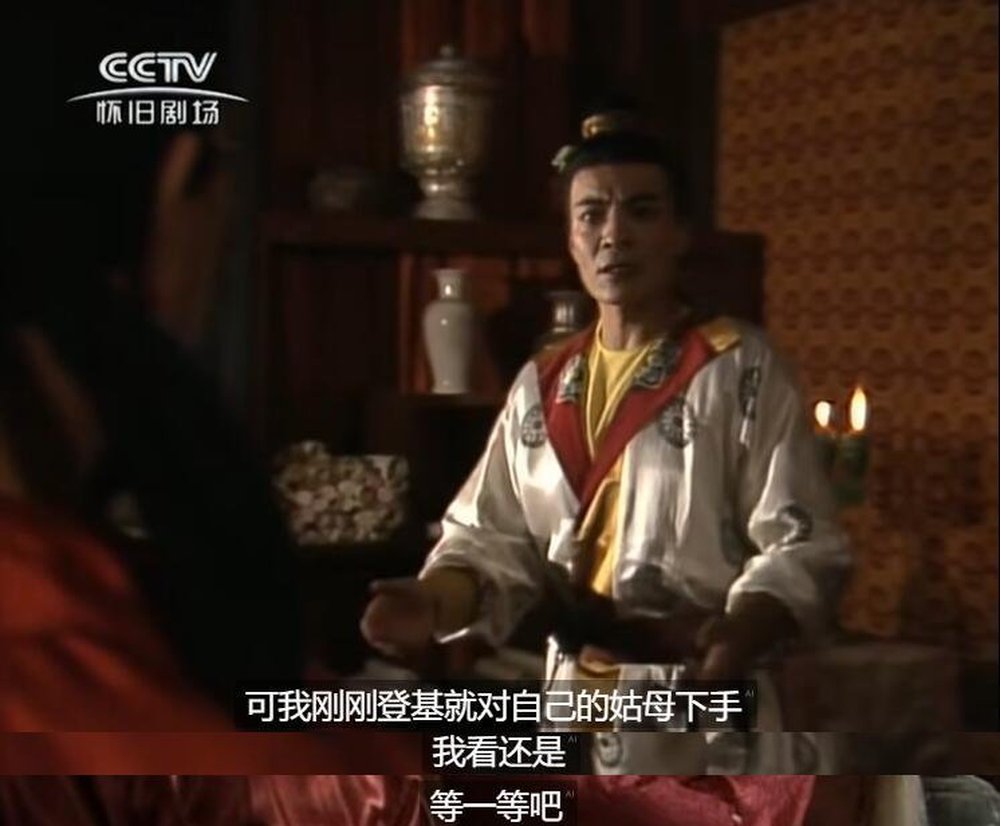
Tang Xuanzong was the passive party of the congenital coup
Princess Taiping, played by Yan Minqiu, has an aggressive and heroic spirit, and has a mother who is like an emperor. I'd rather have broken pieces of jade than live with nothing. In fact, after the failed coup d'etat in history, Princess Taiping begged for mercy from Li Dan; in the end, she was given to die at home by Li Longji. The adaptation of the TV series gave Princess Taiping a perfect image of a heroine among girls; it also gave the protagonist a perfect image of emphasizing family affection.
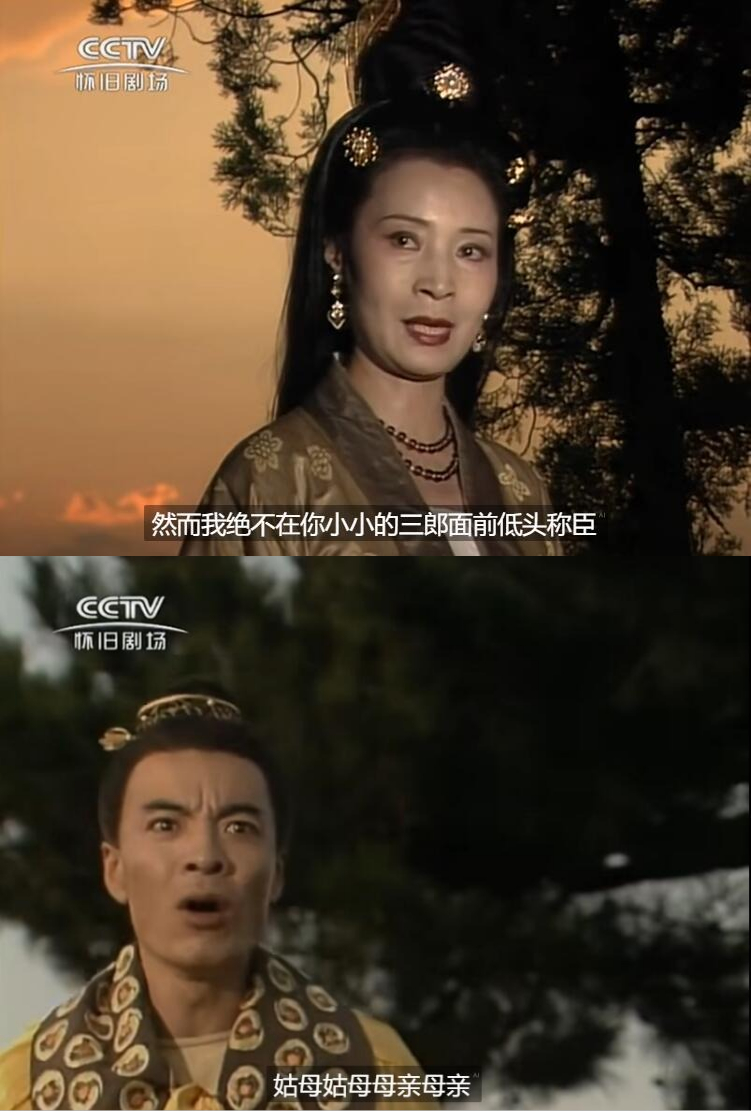
Love Emperor
In the first half of the TV series, Li Longji not only values family affection, but also the righteousness of the monarch and ministers. In order to protect the two virtuous ministers Yao Chong and Song Jing, he did not hesitate to offend his aunt and was misunderstood by his father. He is a morally perfect image of an emperor.
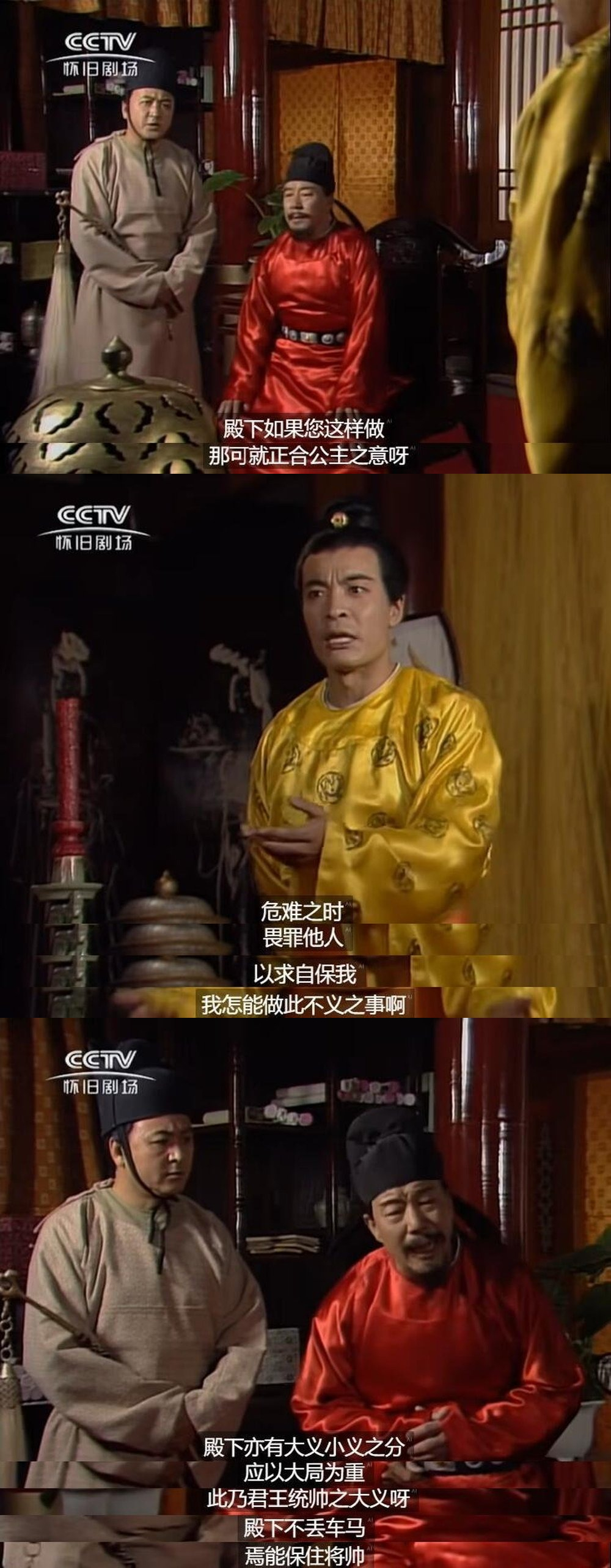
Chongyi Emperor
Tang Dance
Li Longji's life was full of legends, and his talent was the best among the successive emperors of China. He is also proficient in piano, chess, calligraphy and painting, especially good at rhythm and calligraphy, which has a great influence on the development of music in our country, and is regarded as the originator of Liyuan by the people. The song and dance performance of "Tang Minghuang" is indispensable, not only to show the atmosphere of the prosperous Tang Dynasty, but also to conform to the identity of the hero as the originator of Liyuan. In this play, singing and dancing are also endowed with another important meaning. It is the introduction for the opera emperor to know several heroines. Li Longji, who loves music and dance, has a soft spot for beauties who are good at singing and dancing.
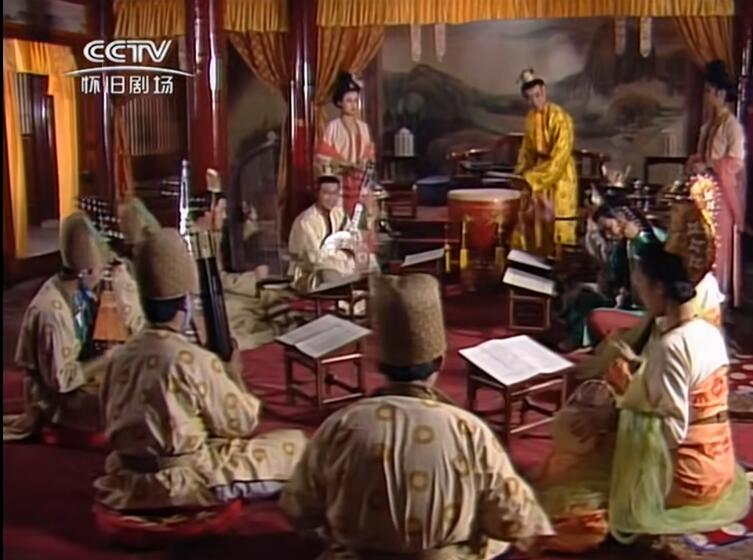
musician regal
In the first episode, when Li Longji was still a little girl in Luzhou, he met Zhao Liniang, a good dancer in Luzhou. She danced " Green Waist Dance " and "March Girlfriend" for Li Longji. Zhao used dance to fascinate Li Longji and became the concubine of the county king. After Li Longji ascended the throne, he named Zhao as Concubine Li. Zhou Jie, who plays Zhao Liniang, is a dancer herself. Dance teaser is also a feature of Zhao Lifei's story. Zhao Liniang, who was in the era of special pets, danced "Green Waist Dance". When her husband empathized with Wu Yun'er (Concubine Wu Hui), Concubine Zhao Li danced a song "Jade Order Complaint" to express her grievances. When Zhao Lifei bid farewell to Li Longji when she was dying, she still danced " Grandma in March ".
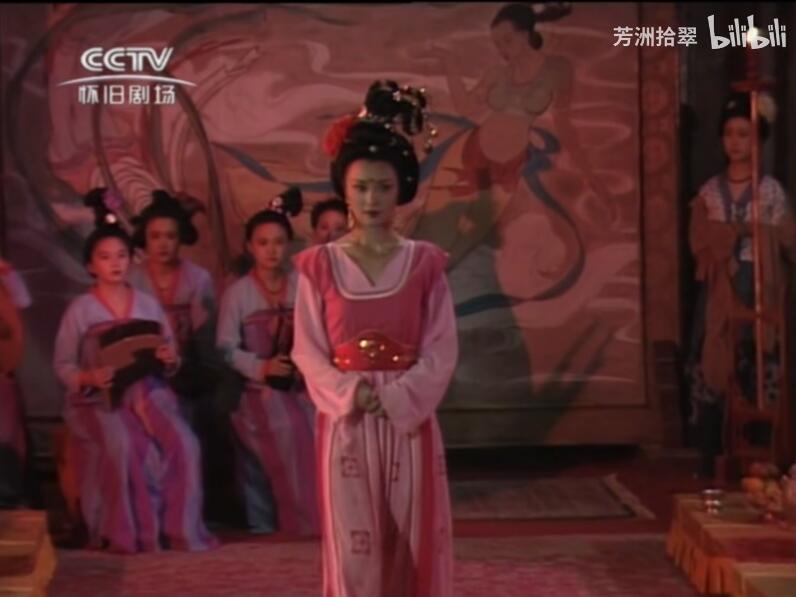
Zhao Liniang comes on stage
Concubine Zhao Li used dance to express her love, and Concubine Wu Hui, who was favored later, conquered the emperor with a pipa. Li Jianqun, who plays Concubine Wu Hui, is also the costume designer of the play. In episode 6, Wu Yun'er, who is still talented, attracted Li Longji with her beautiful pipa sound . After Wu Yun'er became pregnant, she wanted to be named for herself, and she also used a pipa to convey her tenderness, and finally gained a name for herself.
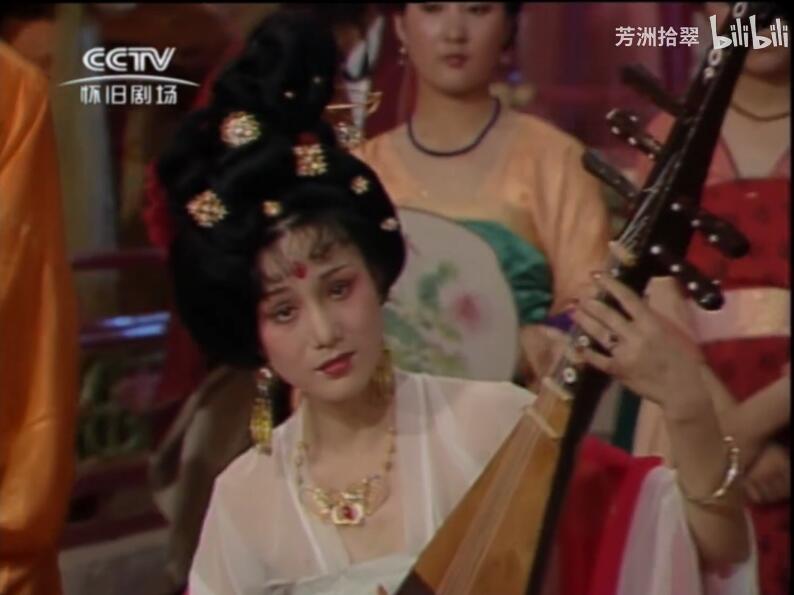
Wu Yuner debut
Concubine Wu Hui was favored later by her daughter-in-law Yang Yuhuan. Lin Fangbing, who had always played the role of a modern girl, gained more than ten kilograms and became the concubine Yang Guifei who brought her both honor and pain. "Tang Minghuang" is a TV series mainly about the life of the emperor, and Li Longji's favorite concubine is Concubine Yang. Therefore, Yang Guifei appeared early in episode 17. In the play, Yang Yuhuan's character is innocent and lively, and the background music is mainly lively and brisk. Like Zhou Jie's Zhao Lifei, there is no substitute for dancing. In order to play Yang Guifei well, while gaining weight, Lin Fangbing, who is not a dance major, also needs to learn dance. The hard work of the actors has yielded fruitful results. She played the pipa and danced for the first time, she was full of charm, charming and charming.
Speaking of Concubine Yang's dance, I have to mention her representative dance " Neon Clothes and Feather Dress Dance ". The accompaniment to this dance is Li Longji's proud work, "Neon Clothes and Feather Clothes". According to historical records, in the twenty-eighth year of Kaiyuan, when Yang Yuhuan met Li Longji for the first time in Huaqing Pool, Li Longji also played "Neon Clothes and Feather Clothes Song" to guide him. In the end, the sound of rebellion from Yuyang County shocked "Song of Neon Clothes and Feathers".
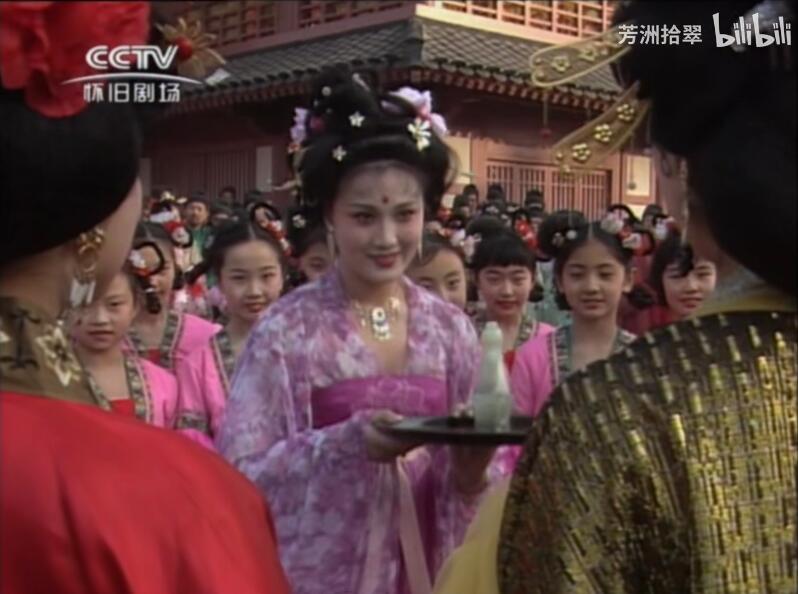
Yang Yuhuan comes on stage
Rehabilitation
Since the Xia Dynasty, the allusions of "women's sex wronging the country" have been endless in history books, such as Yuxi in Xia, Daji in Shang, Baosi in Zhou and Liji in Jin...and of course Yang Yuhuan in Tang Dynasty. These great beauties who overwhelm the country and the city really overwhelmed the world. Therefore, their love stories have become inexhaustible topics for historians and writers.
Yang Yuhuan in the TV series is a good man who has no intentions. When she was with the longevity king Li Wei, she was lively and loving; when she was harassed by her father-in-law, she panicked; when she saw Li Longji's heroic appearance on the polo field, she was deeply moved. From Concubine Shou to Taoist priest to noble concubine, from helpless submission to enjoyment, the performance is very natural and real. The love between Li and Yang in the TV series is also sincere. In "The Song of Everlasting Sorrow", the classic love story "July 7th in the Palace of Eternal Life, when no one is whispering at midnight" has been restored. On the night of Qixi Festival, Li Longji and Yang Yuhuan made a vow to be husband and wife forever in front of Cowherd and Weaver Girl.
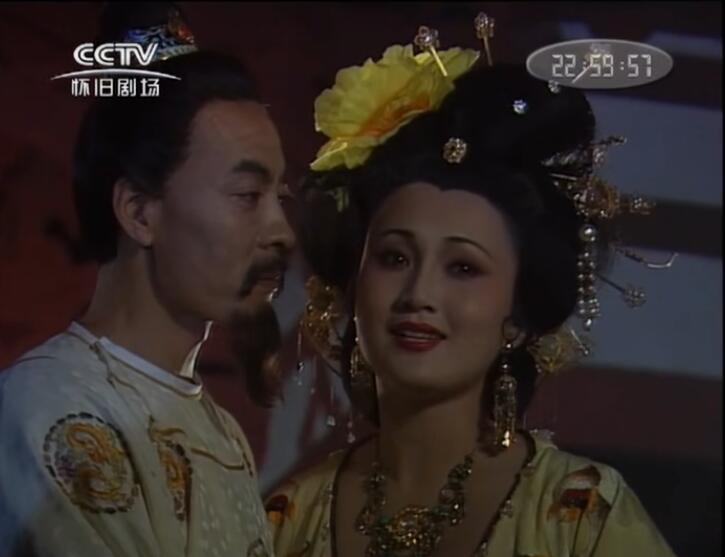
Qixi Festival under the moon
Yang Yuhuan in the play is also an image of a virtuous wife with a bodhisattva heart. She spoke for the exiled princess and concubine many times. Yang Yuyao heard that Concubine Wei Xiu and Zhang Cairen mocked her, and wanted to take advantage of Yang Yuhuan's favor to sue Xuanzong, but Yang Yuhuan dissuaded her. She is also a woman who pursues true love and is not afraid of offending the imperial power. Facing the emperor flirting with her sister, she still dared to reprimand "surreptitiously, how can there be the dignity of the emperor".
Yang Yuhuan in the play is not a person who covets glory and wealth. Once she moved the relics of Li Chengqi who died, and contradicted Li Longji, who drove him out of the palace. She returned to Yang's house without looking back. However, the entire Yang family, who were afraid of losing their glory and wealth, were terrified when they knew that Yuhuan was sent out of the palace. Yang Guozhong and others advised Yang Yuhuan to return to the palace immediately to admit his mistake. She is not as pretentious as her brothers and sisters. Her relatives are the chief culprits who interfered in the government affairs and the harem, causing Tianbao's crisis.
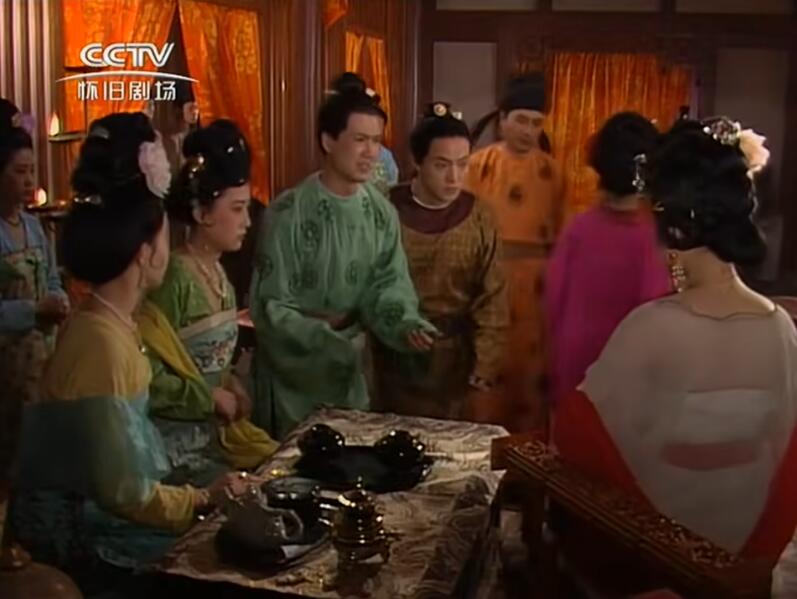
The brothers and sisters of the Yang family who are greedy for wealth and honor reveal their true colors
The TV series produced a plot about the fate of Yang Yuhuan. When the young Yuhuan went to Chang'an for the first time, her carriage passed the ancient temple next to Mawei Slope. She entered the temple and looked at everything innocently. The old monk of the ancient temple told her that the starting point is the destination, and we will meet again. In the end, Yang Yuhuan ended her life in Maweipo.
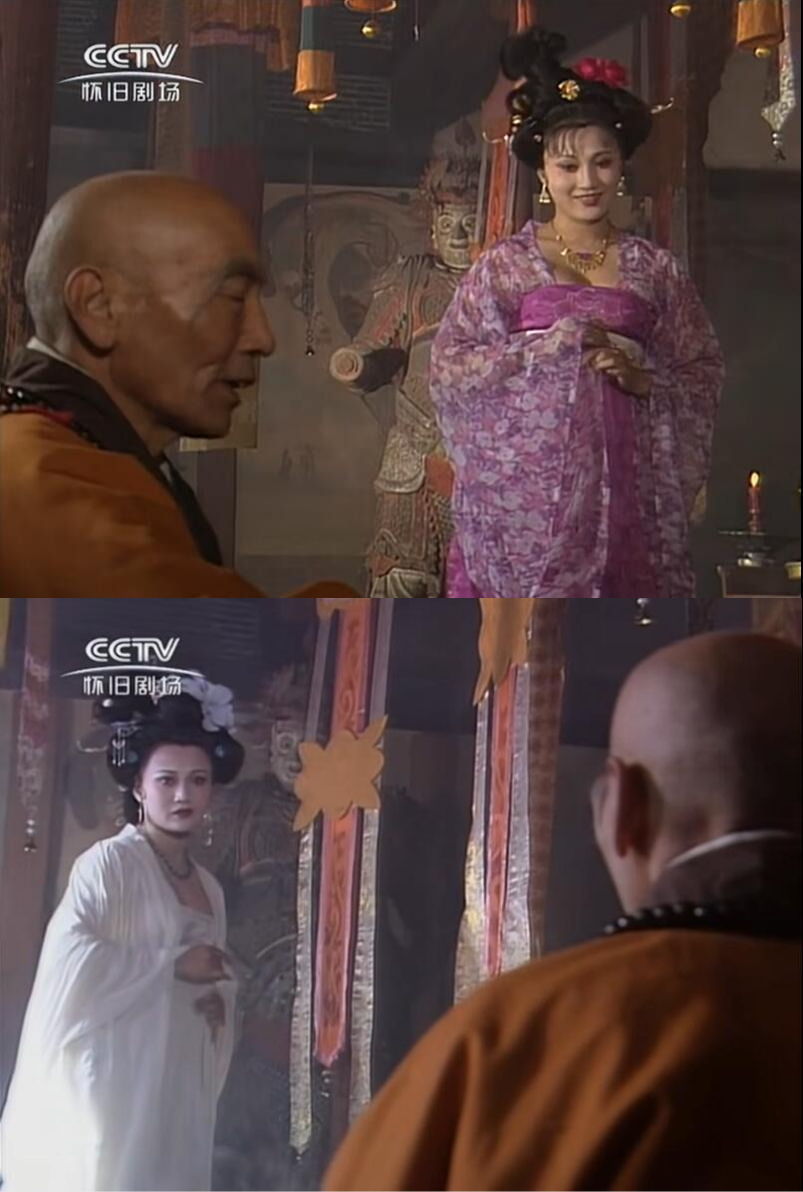
Yang Yuhuan's starting point is the destination
In addition to Concubine Yang, the image of Li Longji's other partner Gao Lishi is also positive. Gao Lishi was the only person who witnessed Li Longji's transformation from county king to prince, and from prince to emperor. He was also an important person who witnessed the prosperity and decline of the Tang Dynasty. He was loyal and persuaded Li Dan to abdicate, and helped Li Longji pacify Princess Taiping and keep Prince Li Heng. At every critical moment, he helped Tang Chao and Li Longji. He was a true loyal minister and a virtuous eunuch.
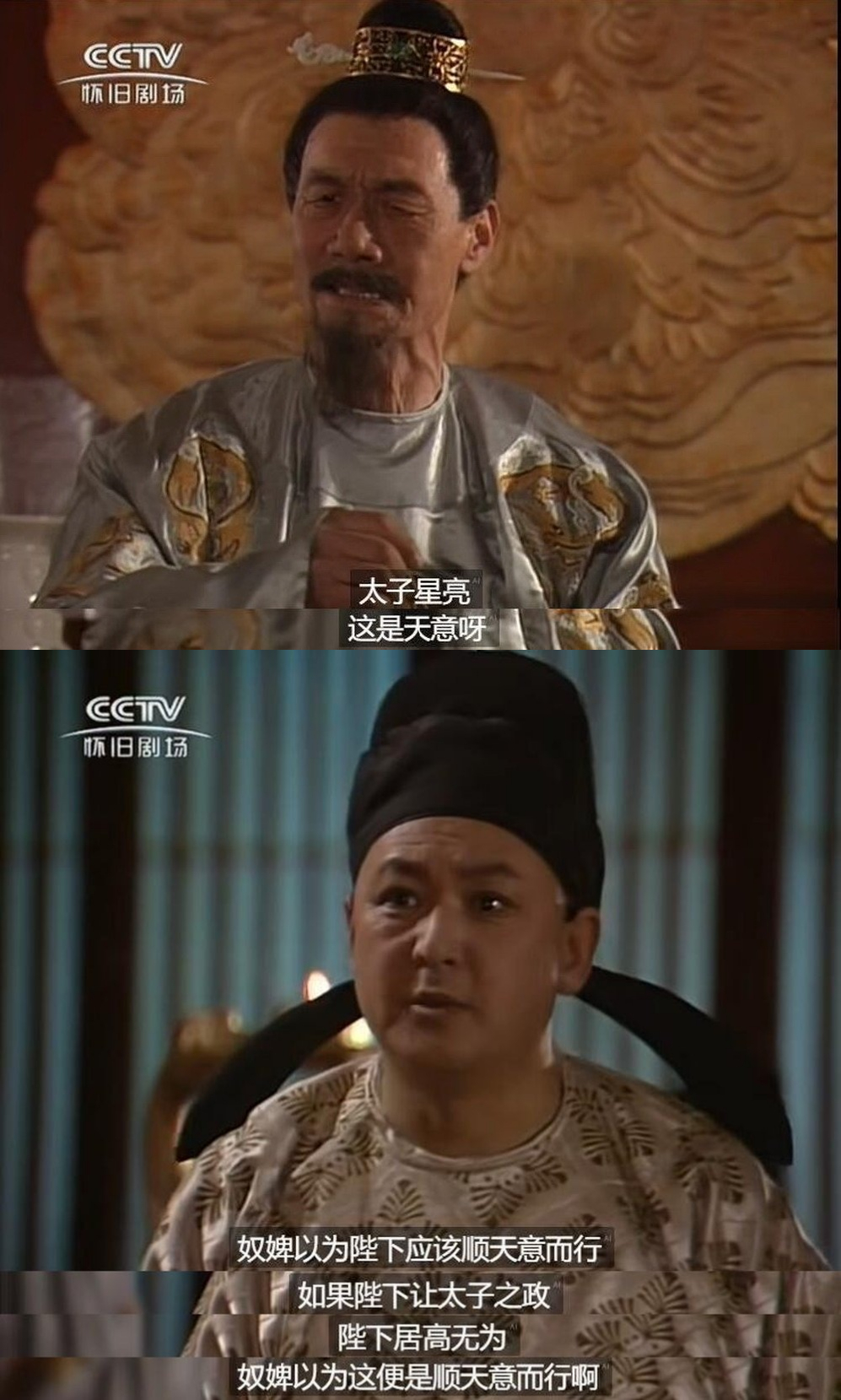
Gao Lishi persuaded Tang Ruizong to abdicate
As a historical production, Yao Chong, He Zhizhang, Song Jing, Zhang Shuo, Zhang Jiuling, Li Bai and other famous historical figures also appeared one by one. Of course, in the process of presenting history, "Tang Minghuang" also has many historical corruptions. For example, Shandong Road appeared in the play; in fact, the present-day Shandong area belonged to Henan Road at that time. In the play, Li Bai was enshrined by the emperor as a fifth-rank Hanlin; in fact, there was no rank in the Hanlin enshrined in the Tang Dynasty. Despite these shortcomings and jokes, "Tang Minghuang" is still an excellent work. The dance and costumes are restored by professionals, allowing the audience to experience the atmosphere of the Tang Dynasty visually and audibly for the first time.
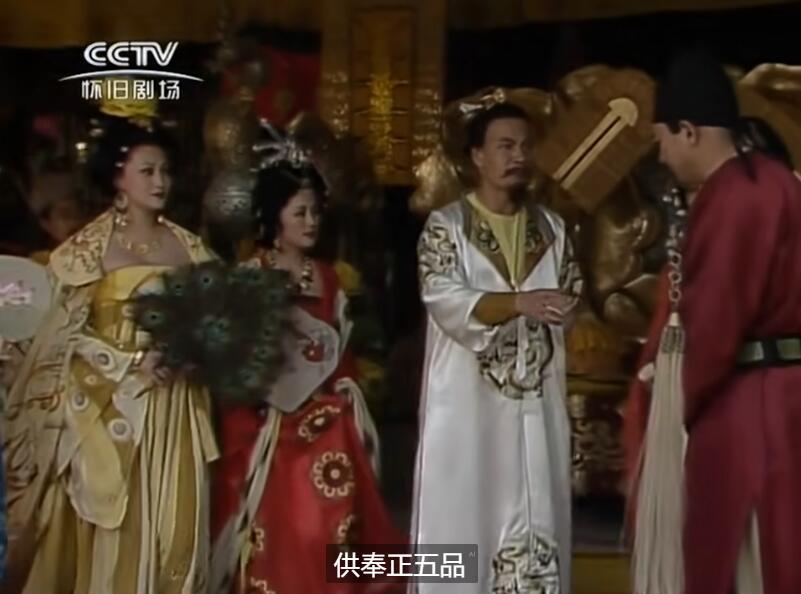
In fact, there is no rank in the Hanlin worship in the Tang Dynasty

